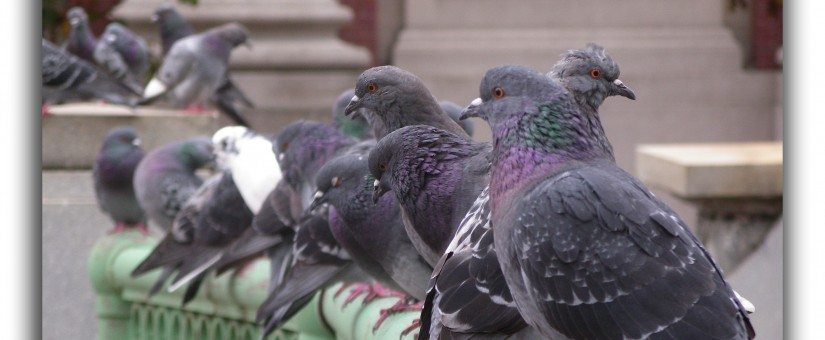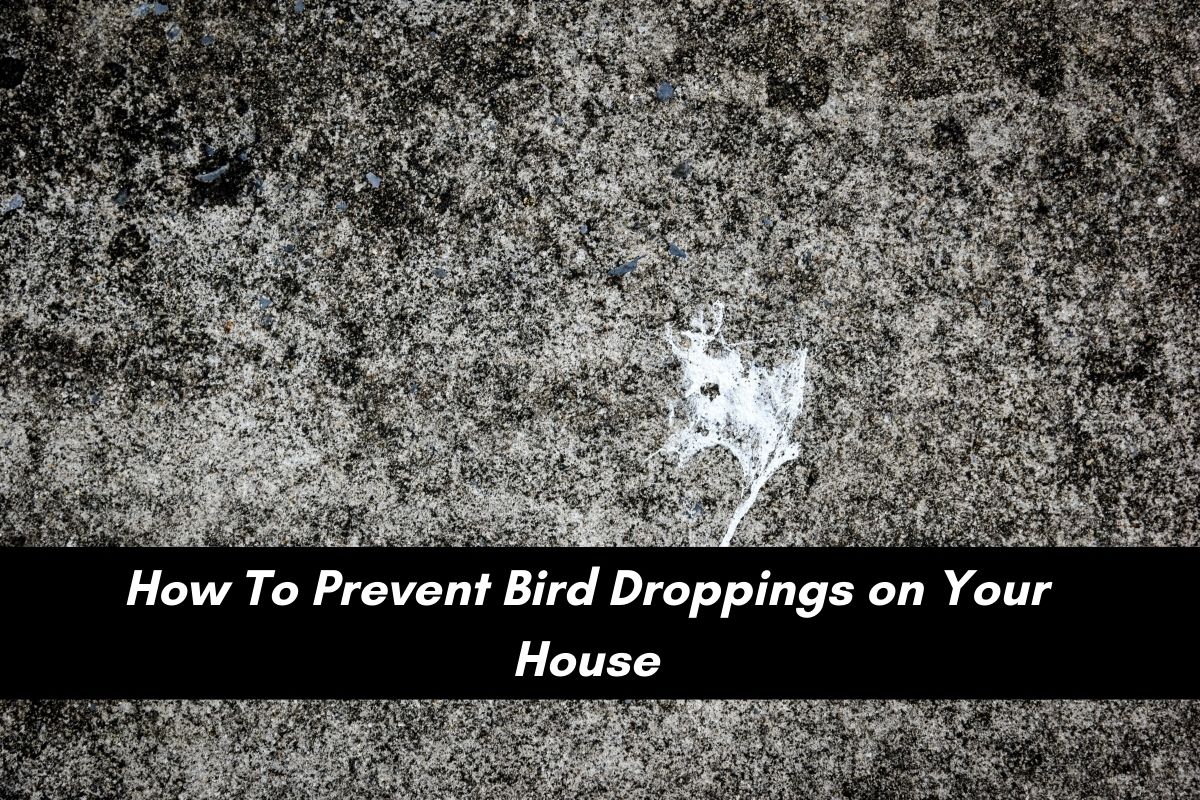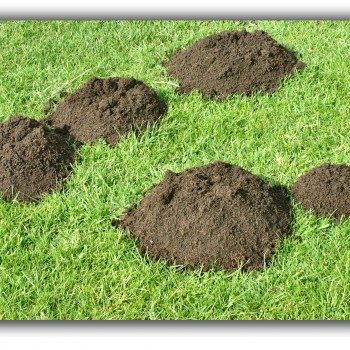
Bird Control Solutions from
- Posted by Admin
- On January 10, 2025
- 0 Comments
Birds are an important and valued part of our natural environment, and they must be handled with sensitivity, but they can become pests when their presence or activities cause significant damage or pose a threat to human health, safety, or property.
Birds like pigeons, blackbirds, or starlings can cause extensive damage to structures, buildings, roofs, and equipment by nesting, roosting, or pecking. Their droppings can corrode building materials, destroy vegetation, and contaminate surfaces.
Bird Problems in Winston-Salem and Greensboro
For homeowners, signs of a bird problem can vary depending on the species of bird and the extent of the infestation. Here are some common signs to look out for:
- Nesting Materials: Finding nests or nesting materials such as twigs, grass, feathers, and debris in or around your home, particularly in sheltered areas like eaves, vents, or gutters.
- Bird Droppings: Accumulations of bird droppings on surfaces such as rooftops, windowsills, ledges, and outdoor furniture. Fresh droppings are usually moist and dark, while older droppings may appear whitish and dried.
- Damage to Property: Damage to property caused by birds, such as pecking or scratching on wooden surfaces, siding, or window screens. Birds may also cause damage to crops, gardens, and fruit trees.
- Noise: Persistent noise from birds, especially during the early morning or evening hours, indicating their presence nearby or in nesting areas.
- Presence of Bird Nests: Discovering nests built in or around your home, including in trees, shrubs, vents, chimneys, or attic spaces. Nests can vary in size and complexity depending on the bird species.
- Aggressive Behavior: Aggressive behavior from birds, especially during breeding season when they may become territorial or protective of their nests.
- Fouling of Surfaces: Fouling of surfaces with bird feathers, regurgitated pellets, or other debris near roosting or nesting sites.
- Insect Activity: Increased insect activity around your home, as some birds may attract insects or pests to nesting areas or feed on insects attracted to your property.
- Health Hazards: Potential health hazards associated with bird droppings, include the risk of disease transmission, respiratory issues, and slip-and-fall hazards from slippery surfaces.
- Unpleasant Odors: Foul odors are caused by the decomposition of bird droppings or nesting materials, especially in confined or poorly ventilated spaces like attics or crawl spaces.
If you notice any of these signs of a bird problem around your home, it’s important to take action promptly to address the issue. Depending on the severity of the infestation and the specific circumstances, you may need to implement bird deterrent measures or seek professional assistance from pest control experts.
The Need for Commercial Bird Control in the Triad
Birds can cause various problems for commercial properties in the Triad, as they do in many urban and suburban areas. Some of the common issues that birds may create for commercial properties include:
- Property Damage: Birds such as pigeons and starlings can cause damage to buildings, signs, and other structures by nesting in or on them. Their nesting materials and droppings can also lead to deterioration of building materials over time.
- Health and Sanitation Concerns: Bird droppings can carry pathogens and parasites that may pose health risks to employees, customers, and visitors to commercial properties. Accumulated droppings can also create unsanitary conditions that may violate health codes and regulations.
- Slip and Fall Hazards: Bird droppings are slippery when wet, posing slip and fall hazards on walkways, entryways, and outdoor seating areas of commercial properties. This can increase the risk of accidents and potential liability issues for property owners.
- Damage to Landscaping: Birds such as Canada geese and ducks may overgraze on grass and vegetation, causing damage to landscaping around commercial properties. This can result in additional maintenance costs and aesthetic issues for property owners.
- Negative Impact on Image and Reputation: The presence of birds, especially in large numbers, can create an unsightly and unprofessional appearance for commercial properties. This may deter customers and clients and negatively impact the reputation of businesses operating on the premises.
- Noise Disturbances: Some bird species, such as grackles and starlings, are known for their loud and persistent vocalizations, which can create noise disturbances for employees and customers in commercial settings. This can affect productivity and customer experience.
To address these issues, commercial property owners in Winston-Salem and Greensboro may employ various bird control measures, including bird netting, spikes, repellents, and deterrents, as well as habitat modification and exclusion techniques. It’s essential to implement humane and effective bird control strategies that comply with local regulations and environmental considerations.
Bird Control Solutions from Critter Control of the Triad
Bird control deterrents come in three categories visual, audio, barrier, and chemical deterrents. The setting determines the most effective one to use.
Bird Barriers
Bird barriers remove potential roosting locations for birds.
Bird Netting
Birds have the ability to get into gaps that are as small as 3/4 of an inch (depending on the bird species), so specialized netting material is needed to provide adequate protection from bird entry. Nets come at various gap sizes, lengths and heights. They range from 10ft x 10ft, 25ft x 25ft, 50ft x 100ft and possibly some custom sizes; however, usually, the netting may have to attached together if it is not the adequate size. Bird netting can be used alongside buildings and to enclose areas off completely. They can be ordered in different colors. Manufacturer provides a 5-year warranty on the product.
Bird Slide
Bird Slide is a permanent deterrent system for birds such as pigeons that like to nest or loaf on ledges of buildings. They are installed via screws or glue and are paintable to match the structure. They are highly effective in creating a ledge that discourages them from landing.
Bird Spikes
Bird spikes are the most common form of eliminating roosting access for birds. They work for birds as small as finches to as large as seagulls. They come in sizes of 1 inch, 3 inch, 5 inch and 8 inch spread to provide the best coverage. They can be easily cut and installed onto almost any surface. They can be glued or screwed down.
Bird spikes are made in different materials. Plastic spikes are ideal for smaller birds because they can fit between stainless steel spikes. Larger birds break plastic spikes. It is best to have the application area cleaned off for the best installation.
Mylar Tape
Mylar tape strips are a visual deterrent against pigeons, woodpeckers, water fowl and other birds. It is hung on a structure to intimidate birds from landing or flying around a certain area of a structure. Mylar tape can also be used effectively in gardens to protect crops.
This can also be hung on scare eye balloons for increased intimidation.
Optical Gel
Bird Barrier optical gel may be used to deter feral pigeons, gulls, and many other unwanted birds from roosting on buildings and other structures. It does so by altering their behavior, not by acting as a physical barrier. Once applied, birds will completely desert a habitat, even one they have been using for years.
Multi-sensory bird repellent that has birds seeing fire or smoke, although there is not any and smelling peppermint oil, which they dislike. It also is sticky to the touch, which birds do not like to land on.
Bird Barrier optical gel is supplied in ready-to-use plastic-dish containers. These should be affixed to surfaces with commercially available silicone adhesive or other suitable and removable adhesive.
Bird Control Services from Critter Control of the Triad
Hiring a hire a bird control expert to provide bird control services. Getting rid of pest birds is only part of the solution. Installing deterrents and repellents can work to scare pest birds away, but it doesn’t solve all the problems associated with a bird infestation.
You need to clean up any nesting materials especially if they are inside vents or attics. It’s important to remove bird feces and sanitize the area. Health risks from bird droppings can carry a large number of diseases, fleas, lice, mites, and ticks. Bird droppings spread various diseases and parasites, including histoplasmosis and cryptococcosis.





